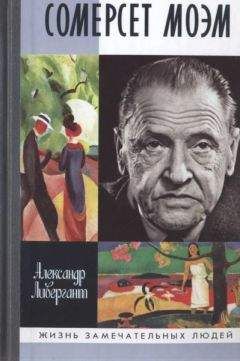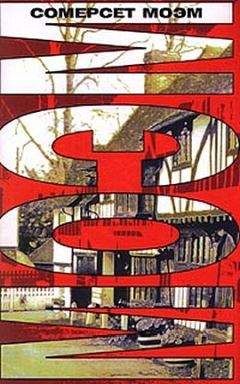Уильям Моэм - Мистер Всезнайка. Рассказы
placid [`plxsId], nourish [`nArIS], solemn [`sOlqm]
Beatrice, though naturally of a placid disposition, began to cry gently. It was very pathetic. Indeed, it would have been a hard heart that failed to be moved by the sight of Frank, that lion-hearted woman, crying her eyes out. Presently, however, they dried their tears and had a little brandy and water, which every doctor had told them was the least fattening thing they could drink, and then they felt much better. They decided that Lena should have the nourishing food that had been ordered her and they made a solemn resolution not to let it disturb their equanimity. She was certainly a first-rate bridge player and after all it was only for a fortnight. They would do whatever they could to make her stay enjoyable. They kissed one another warmly and separated for the night feeling strangely uplifted. Nothing should interfere with the wonderful friendship that had brought so much happiness into their three lives.
But human nature is weak (но человеческая натура слаба). You must not ask too much of it (не надо требовать от нее слишком многого; you— ты, вы; употребляется также в безличных оборотах;toask— спрашивать; просить, требовать). They ate grilled fish (они ели жареную рыбу) while Lena ate macaroni sizzling with cheese and butter (в то время как Лина ела макароны, шипящие от /расплавленного/ сыра и масла; tosizzle— шипеть /при жаренье, запекании, сжигании/); they ate grilled cutlets and boiled spinach while Lena ate pвtйdefoiegras (они ели жареные отбивные котлеты и вареный шпинат, в то время как Лина ела пате де фуа гра: «/фр./ печеночный паштет»); twice a week they ate hard-boiled eggs and raw tomatoes (дважды /в/ неделю они ели вареные вкрутую яйца и свежие помидоры; raw— сырой, свежий; необработанный), while Lena ate peas swimming in cream (в то время как Лина ела горох, плавающий в сливках) and potatoes cooked in all sorts of delicious ways (и картофель, приготовленный всеми вкусными способами; sort— род, сорт, вид, тип). The chef was a good chef (шеф-повар был хорошим шеф-поваром) and he leapt at the opportunity afforded him (и он /так и/ ухватился за возможность, предоставленную ему) to send up one dish more rich, tasty and succulent than the other (чтобы отправлять с кухни: «наверх» одно блюдо более жирным, вкусным и сочным, чем остальные; rich— богатый; сдобный, жирный /о еде/).
"Poor Jim," sighed Lena, thinking of her husband (бедный Джим, вздыхала Лина, вспоминая своего мужа; tothink— думать; полагать; вспоминать), "he loved French cooking (он любил французскую кухню; cooking— кулинария; стряпня)."
The butler disclosed the fact that he could make half a dozen kinds of cocktail (дворецкий признался: «раскрыл тот факт», что он может делать полдюжины видов коктейлей) and Lena informed them that the doctor had recommended her to drink burgundy at luncheon and champagne at dinner (и Лина сообщила им, что доктор порекомендовал ей пить бургундское вино за обедом и шампанское за ужином; luncheon— второй завтрак, обед /обычно в 12–14 часов/;dinner— обед, ужин /главная трапеза дня, обыкновенно в 7–8 часов вечера/).
macaroni ["mxkq`rqunI], chef [Sef], champagne [Sxm`peIn]
But human nature is weak. You must not ask too much of it. They ate grilled fish while Lena ate macaroni sizzling with cheese and butter; they ate grilled cutlets and boiled spinach while Lena ate pвtй de foie gras; twice a week they ate hard-boiled eggs and raw tomatoes, while Lena ate peas swimming in cream and potatoes cooked in all sorts of delicious ways. The chef was a good chef and he leapt at the opportunity afforded him to send up one dish more rich, tasty and succulent than the other.
"Poor Jim," sighed Lena, thinking of her husband, "he loved French cooking."
The butler disclosed the fact that he could make half a dozen kinds of cocktail and Lena informed them that the doctor had recommended her to drink burgundy at luncheon and champagne at dinner.
The three fat women persevered (трое толстушек: «толстых женщин» были стойкими; topersevere— упорно добиваться; стойко, упорно продолжать). They were gay, chatty and even hilarious (они были веселы, болтливы и даже забавны: «уморительны») (such is the natural gift that women have for deception (таков природный дар, который есть у женщин для обмана)) but Beatrice grew limp and forlorn (но Беатрис стала вялой и жалкой/несчастной), and Arrow's tender blue eyes acquired a steely glint (а ласковые голубые глаза Эрроу приобрели стальной блеск). Frank's deep voice grew more raucous (низкий голос Фрэнк стал более хриплым). It was when they played bridge that the strain showed itself (именно когда они играли /в/ бридж, проявлялось это напряжение; itis…that/who— усилительная конструкция). They had always been fond of talking over their hands (они всегда любили обсуждать свои “руки”; tobefondof— любить;hand— рука; в бридже карты каждого из игроков называют рукой), but their discussions had been friendly (но их обсуждения /прежде/ были дружескими). Now a distinct bitterness crept in (теперь /же/ появилась какая-то явная: «отчетливая» горечь; tocreepin— накапливаться, постепенно появляться) and sometimes one pointed out a mistake to another with quite unnecessary frankness (и иногда одна указывала другой на ошибку с довольно излишней прямотой). Discussion turned to argument and argument to altercation (обсуждение превращалось в спор, а спор в ссору/перебранку). Sometimes the session ended in angry silence (временами игра заканчивалась в сердитом молчании; session— заседание; сессия; время, отведенное какой-либо деятельности или занятию). Once Frank accused Arrow of deliberately letting her down (один раз Фрэнк обвинила Эрроу в /том, что та/ нарочно подставила ее; deliberately— умышленно; преднамеренно; сознательно;toletdown— подвести; покинуть в беде). Two or three times Beatrice, the softest of the three, was reduced to tears (два или три раза Беатрис, самую мягкую из /них/ троих, довели до слез). On another occasion Arrow flung down her cards and swept out of the room in a pet (в другой раз Эрроу бросила свои карты и величественно удалилась из комнаты в дурном настроении; occasion — случай; причина, основание, повод; to sweep — мести; сметать;ходитьвеличаво, высокоподнявголову; out — вне, наружу). Their tempers were getting frayed (они начали терять самообладание; temper— нрав; настроение; самообладание; раздражение;toget— получать; становиться, делаться;tofray— протирать/ся/, изнашивать/ся/; истрепать, издергать /нервы/; раздражать). Lena was the peacemaker (Лина была миротворцем).
"I think it's such a pity to quarrel over bridge (я полагаю, это так грустно ссориться из-за бриджа; pity— жалость, сожаление; печальный факт)," she said. "After all, it's only a game (в конце концов, это только игра)."
persevere ["pWsI`vIq], hilarious [hI`leqrIqs], distinct [dIs`tINkt]
The three fat women persevered. They were gay, chatty and even hilarious (such is the natural gift that women have for deception) but Beatrice grew limp and forlorn, and Arrow's tender blue eyes acquired a steely glint. Frank's deep voice grew more raucous. It was when they played bridge that the strain showed itself. They had always been fond of talking over their hands, but their discussions had been friendly. Now a distinct bitterness crept in and sometimes one pointed out a mistake to another with quite unnecessary frankness. Discussion turned to argument and argument to altercation. Sometimes the session ended in angry silence. Once Frank accused Arrow of deliberately letting her down. Two or three times Beatrice, the softest of the three, was reduced to tears. On another occasion Arrow flung down her cards and swept out of the room in a pet. Their tempers were getting frayed. Lena was the peacemaker.
"I think it's such a pity to quarrel over bridge," she said. "After all, it's only a game."
It was all very well for her (все было = складывалось очень хорошо для нее). She had had a square meal and half a bottle of champagne (она плотно поела и выпила полбутылки шампанского: «она имела обильную еду и полбутылки шампанского»). Besides, she had phenomenal luck (кроме того, ей необыкновенно везло: «она имела феноменальное везение»). She was winning all their money (она выигрывала все их деньги). The score was put down in a book after each session (подсчет очков записывался в книгу после каждой игры; score — счет; to put down — опускать, класть; записывать; session — заседание; сессия;время, отведенноекакой-либодеятельностиилизанятию), and hers mounted up day after day with unfailing regularity (и ее /счет/ неизменно: «с неизменной регулярностью» рос: «поднимался вверх» день за днем). Was there no justice in the world (/разве не/ было никакой справедливости на свете)? They began to hate one another (они начали ненавидеть друг друга). And though they hated her too (и хотя они ее тоже ненавидели) they could not resist confiding in her (они не могли удержаться /от того, чтобы не/ довериться ей). Each of them went to her separately (каждая из них пошла к ней по отдельности) and told her how detestable the others were (и рассказала ей, насколько другие были отвратительны). Arrow said she was sure (Эрроу сказала, /что/ она была уверена) it was bad for her to see so much of women so much older than herself (/что/ для нее было плохо видеть столько: «так много» женщин настолько старше ее: «чем /она/ сама»). She had a good mind to sacrifice her share of the lease (она была не прочь пожертвовать своей долей аренды /виллы/; tohaveagoodmind— быть склонным /что-либо сделать/) and go to Venice for the rest of the summer (и поехать в Венецию на остаток = до конца лета). Frank told Lena that with her masculine mind it was too much to expect (Фрэнк рассказала Лине, что с ее мужским /складом/ ума это было /бы/ слишком ожидать/надеяться) that she could be satisfied with anyone so frivolous as Arrow and so frankly stupid as Beatrice (что она могла бы быть удовлетворена /общением с/ кем-нибудь столь легкомысленным, как Эрроу, и столь глупым, как Беатрис).
"I must have intellectual conversation," she boomed (мне нужна интеллектуальная беседа, пробасила она). "When you have a brain like mine (когда у тебя /такие/ мозги как у меня: «как мои») you've got to consort with your intellectual equals (ты должна общаться с равными тебе по интеллекту: «со своими интеллектуальными ровнями»; tohavegotto/разг./ =tohaveto— быть должным, обязанным, вынужденным /что-либо делать/)."
Beatrice only wanted peace and quiet (Беатрис хотела только мира и спокойствия).
"Really I hate women (вообще-то я ненавижу женщин)," she said. "They're so unreliable (они такие ненадежные); they're so malicious (они такие злые)."
regularity ["regju`lxrItI], masculine [`mRskjulIn], unreliable [`AnrI`laIqbl]
It was all very well for her. She had had a square meal and half a bottle of champagne. Besides, she had phenomenal luck. She was winning all their money. The score was put down in a book after each session, and hers mounted up day after day with unfailing regularity. Was there no justice in the world? They began to hate one another. And though they hated her too they could not resist confiding in her. Each of them went to her separately and told her how detestable the others were. Arrow said she was sure it was bad for her to see so much of women so much older than herself. She had a good mind to sacrifice her share of the lease and go to Venice for the rest of the summer. Frank told Lena that with her masculine mind it was too much to expect that she could be satisfied with anyone so frivolous as Arrow and so frankly stupid as Beatrice.




